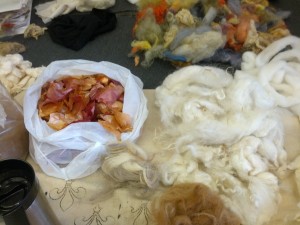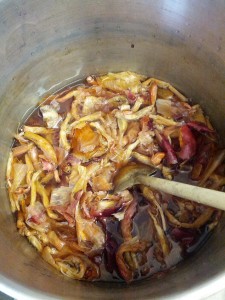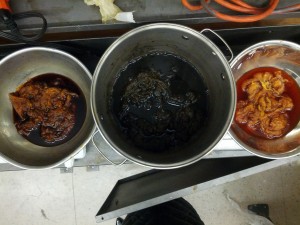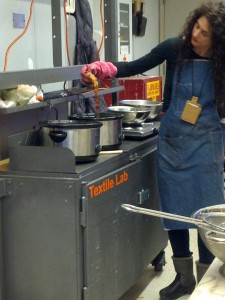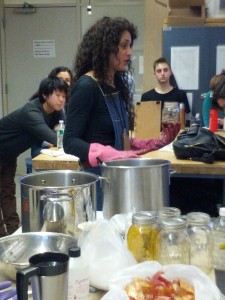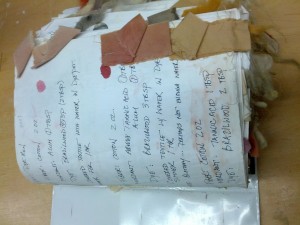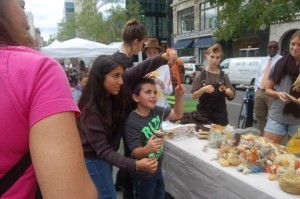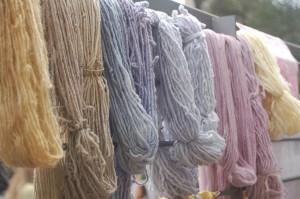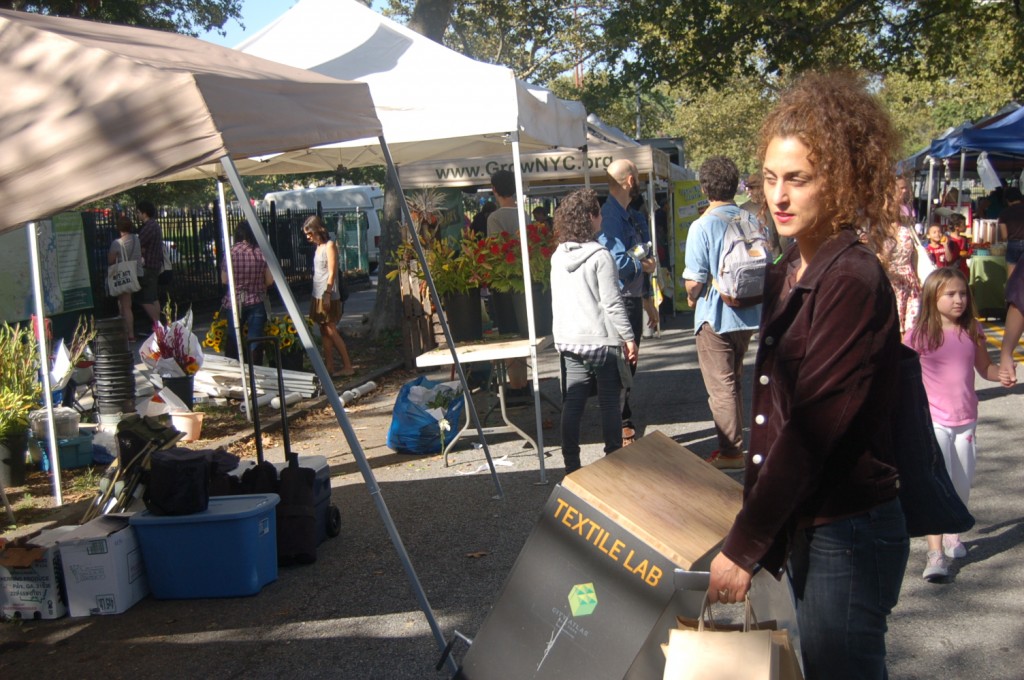Social Entrepreneurs
Slow Fashion
The production of one common cotton t-shirt requires hundreds of gallons of water, gas, pesticides, and labor. The slow fashion movement recognizes the impact that the manufacture of mass-produced clothing has on the environment and challenges consumers to have an open dialogue with apparel companies. Now more than ever, manufacturers are becoming transparent about how they source their materials and make their products. Companies such as Patagonia and Eileen Fisher disclose the sources of all their materials. The results of this transparency are more sustainably manufactured garments.
In the Studio
Natural Dyeing Workshop, Parsons School of Design, New York, NY.
Laura Sansone, a fiber artist, professor, and resident of Beacon, New York, is changing the way in which the sourcing of materials, dyeing, and designing take place within the world of contemporary textiles. In her Textile Lab at Parsons School of Design, Sansone teaches courses on natural dyeing, ethical fiber sourcing, and sustainable fashion. She encourages her students to experiment with vegetables and plants as dyestuffs, and she teaches ways to repurpose old clothing into new garments. Sansone teaches a young generation of designers to take responsibility for their products.
Working with Community
Mobile Textile Lab, Union Square, New York, NY.
From her Mobile Textile Lab, a kitchen and work station on wheels that travels to Greenmarkets in NYC, Sansone educates the public about ethical approaches to natural dye production, clothing design, and the fiber arts. Using compost and food scraps (such as onions and carrot tops) from market vendors, she demonstrates how New York State farms can be the source of natural dyes for regional fiber products. The pigments that Sansone produces in her urban dyeing workshops are determined by what is in season. By making textiles that are earth-friendly, she has opened up a relationship between local farmers, wool producers, and designers.
From her farmers’ market station she also demonstrates spinning and felting as a way to bring crafting to New Yorkers who seek a creative outlet. Often her demonstrations inspire stories and memories of traditions that have been lost, especially for people who used to live in communities or other countries with a strong crafting culture.
Foundation for the Future
Mobile Textile Lab, New York, NY, 2015, photograph courtesy of Laura Sansone.
Obtaining sustainably produced fibers is difficult for large American apparel companies. Most of the world’s cotton is grown as a monoculture crop, using a large volume of resources that leads to widespread environmental degradation and harms local economies. Sansone’s students have compiled The Urban Dyers Almanac, an online database of vegetable and plant dyes from farmers who sell at the Union Square Greenmarket. The almanac also includes a list of New York State wool producers, many of whom Sansone knows personally from her own community in the Hudson Valley. The student project highlights the role of farmers’ markets in building and sustaining regional economies when partnered with small-scale textile production. By researching natural dyes and low-impact fibers, Sansone and her students promote a greener and a more personal alternative to the industrialized production of food and textiles.
Sansone’s Mobile Textile Lab finds new and unexpected partners in the Greenmarkets and local food communities. What does the slow fashion movement and textiles have to do with food production? “Everything,” she says. –M.C.C.
